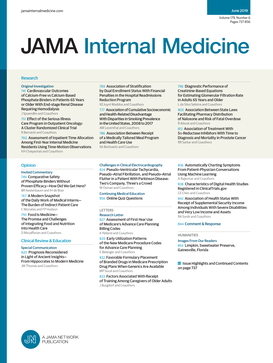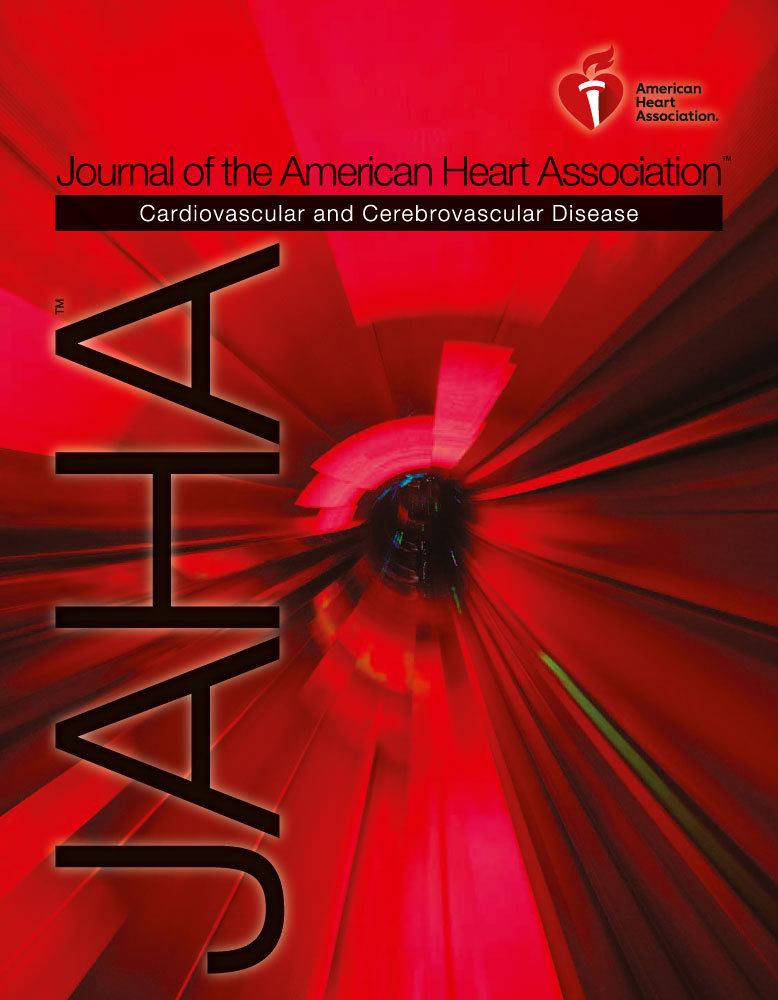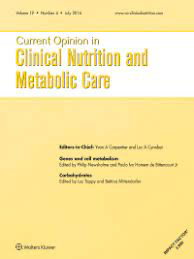Myocardial Infarction
How to submit an article:
- Registered users can submit any published journal article that has a unique DOI (Digital Object Identifier) name or link to Research Hub.
- For example, you can paste the full DOI link:
https://doi.org/10.1109/5.771073or just the DOI name:10.1109/5.771073into the field above and click submit. - The person who is first to submit a valid article to Research Hub will forever be credited for it, and every article submission earns you +6 Research Points.
Published research studies are articles that present the findings of original research that has undergone a peer-review process and has been made publicly available in scholarly journals, books or other media.

Exploring the mechanism of Danggui Sini Decoction in the treatment of myocardial infarction: A systematic review, network pharmacology, and molecular docking
2024 Oct 18 Medicine Li Z, Liu S, Zhang R, Li B
Network Pharmacology Myocardial Infarction Dang Gui Si Ni DecoctionThis article was submitted by Jinnan C. and is awaiting moderation..
The Danggui Sini Decoction, a Traditional Chinese Medicine, may prevent myocardial infarction by positively influencing cell proliferation, inflammatory responses, and aging processes.

Evaluating the Association Between Low-Density Lipoprotein Cholesterol Reduction and Relative and Absolute Effects of Statin Treatment
2022 May 01 JAMA Internal Medicine Byrne P, Demasi M, Jones M, Smith SM, O’Brien KK, DuBroff R
Systematic Review Meta-Analysis Stroke Statin
Marine Omega‐3 Supplementation and Cardiovascular Disease: An Updated Meta‐Analysis of 13 Randomized Controlled Trials Involving 127 477 Participants
2019 Oct Journal of the American Heart Association Hu Y, Hu FB, Manson JAE
Marine omega‐3 supplementation lowers risk for myocardial infarction, CHD death, total CHD, CVD death, and total CVD, even after exclusion of REDUCE‐IT. Risk reductions appeared to be linearly related to marine omega‐3 dose.
Meta-Analysis Omega-3 Fatty Acids Cardiovascular Disease
Beneficial effects of walnut consumption on human health
2018 Nov Current Opinion in Clinical Nutrition and Metabolic Care Ros, Emilioa,b; Izquierdo-Pulido, Maríab,c; Sala-Vila, Aleix
Systematic Review Antiarrhythmic Cardiovascular Disease Metabolic Syndrome Brain Health AnticancerMost bioactive walnut micronutrients synergize to affect multiple metabolic pathways leading to protection from chronic noncommunicable diseases.
Research insights are moderated by the Research Hub team and offer an at-a-glance overview of interesting research findings.

2024 Medicine
The Danggui Sini Decoction, a Traditional Chinese Medicine, may prevent myocardial infarction by positively influencing cell proliferation, inflammatory responses, and aging processes.
Network Pharmacology Dang Gui Si Ni Decoction
Exploring the mechanism of Danggui Sini Decoction in the treatment of myocardial infarction: A systematic review, network pharmacology, and molecular docking
Li Z, Liu S, Zhang R, Li B

2018 Current Opinion in Clinical Nutrition and Metabolic Care
Most bioactive walnut micronutrients synergize to affect multiple metabolic pathways leading to protection from chronic noncommunicable diseases.
Systematic Review Antiarrhythmic Anticancer Brain Health Cardiovascular Disease Metabolic Syndrome
Beneficial effects of walnut consumption on human health
Ros, Emilioa,b; Izquierdo-Pulido, Maríab,c; Sala-Vila, Aleix
Review Articles
Review articles summarise and critically evaluate the current state of research on a specific topic or field by synthesising multiple primary research studies.

Evaluating the Association Between Low-Density Lipoprotein Cholesterol Reduction and Relative and Absolute Effects of Statin Treatment
2022 May 01 JAMA Internal Medicine Byrne P, Demasi M, Jones M, Smith SM, O’Brien KK, DuBroff R
Systematic Review Meta-Analysis Stroke StatinThe relative risk reduction for those taking statins compared with those who did not was 9% for deaths, 29% for heart attacks and 14% for strokes. Yet the absolute risk reduction of dying, having a heart attack or stroke was 0.8%, 1.3% and 0.4% respectively. We found a surprisingly weak and inconsistent relationship between the degree of reduction in LDL cholesterol from taking statins and a person’s chance of having a heart attack or stroke, or dying during the trial period. In some trials, reductions in LDL cholesterol were associated with significant reductions in the risk of dying, but in others, reductions in LDL cholesterol did not reduce this risk. From: Have the benefits of statins been overstated? https://www1.racgp.org.au/newsgp/clinical/have-the-benefits-of-statins-been-overstated —Jinnan C 26 Feb 2024

Beneficial effects of walnut consumption on human health
2018 Nov Current Opinion in Clinical Nutrition and Metabolic Care Ros, Emilioa,b; Izquierdo-Pulido, Maríab,c; Sala-Vila, Aleix
Systematic Review Antiarrhythmic Cardiovascular Disease Metabolic Syndrome Brain Health AnticancerMost bioactive walnut micronutrients synergize to affect multiple metabolic pathways leading to protection from chronic noncommunicable diseases.
Clinical Trials
Clinical trials are research studies that involve people and are conducted to evaluate the safety and efficacy of new treatments or interventions, such as drugs, medical devices, or behavioural therapies.
Study Protocols
Published study protocols are detailed plans that outline the objectives, methodology, statistical analyses, and organisation of a research study that have been made publicly available for others to review and use as a reference.

The efficacy of Tai Chi for intervention treatment of myocardial infarction
2021 Nov 19 Medicine Wu S, Lu Z, Li Z, Li Y
This study will provide reliable evidence regarding the efficacy of Tai Chi in patients with MI and provide up-to-date evidence for its application.
Study Protocol Tai Chi
Effect of Tai Chi on cardiac function in patients with myocardial infarction
2021 Oct 22 Medicine Zhao SJ, Zu YG, Lu M, Jia XW, Chen X
This study will evaluate the effect of Tai Chi on the cardiac function of patients with myocardial infarction. The results of this test will provide clinical evidence for patients to choose which CR exercise.
Study ProtocolPresentation Slides

Network Pharmacology
The Danggui Sini Decoction, a Traditional Chinese Medicine, may prevent myocardial infarction by positively influencing cell proliferation, inflammatory responses, and aging processes.
Li Z, Liu S, Zhang R, Li B

Systematic Review
Most bioactive walnut micronutrients synergize to affect multiple metabolic pathways leading to protection from chronic noncommunicable diseases.
Ros, Emilioa,b; Izquierdo-Pulido, Maríab,c; Sala-Vila, Aleix
Executive Summary
Write an executive summary in the form of a blog article on the topic of "Research into Chinese medicine treatment for Myocardial Infarction" summarising the research below and using language that can be easily understood by patients and avoiding medical jargon using a professional and caring tone of voice.
Write an executive summary in the form of a blog article on the topic of "Researched Chinese medicine treatments for Myocardial Infarction" summarising the research below in an objective and easy to understand way, and using language that can be easily understood by patients. Group the article into Chinese medicine treatments first, followed by nutrition and other treatments. Avoid using medical jargon and use a professional and caring tone of voice.
Write me a concise but easy to understand executive summary on the topic of "Chinese medicine treatments for Myocardial Infarction" based on the following research that I will give you. Your summary should be 2 paragraphs long in Australian English spelling and include references to the studies.
A Network Pharmacology published in 2024 in the journal Medicine found that The Danggui Sini Decoction, a Traditional Chinese Medicine, may prevent myocardial infarction by positively influencing cell proliferation, inflammatory responses, and aging processes. The researchers utilized network pharmacology and molecular docking to uncover the main components and targets of Danggui Sini Decoction (DSD) in the treatment of myocardial infarction. They examined myocardial infarction-related genes using the Genecards database and screened the active ingredients of DSD based on criteria relating to oral bioavailability and drug likeness. To understand the relationship between these components and their potential targets, the researchers generated a protein-protein interaction network diagram using the STRING database. Findings of the investigation led to the identification of 120 primary active ingredients and 561 putative active target genes. The main therapeutic targets were a number of genes associated with processes such as inflammation and cell proliferation. Furthermore, the researchers conducted gene ontology and Kyoto encyclopedia of gene and genome analyses to understand the pathways that DSD acts upon in treating myocardial infarction. The results indicated that DSD treatment involves the positive regulation of certain cellular cascades signifying positive impact on cell proliferation, inflammatory responses, aging, and other biological processes. Molecular docking results indicate potential interactions between DSD and certain genes, suggesting its role in treatment.
A Systematic Review published in 2018 in the journal Current Opinion in Clinical Nutrition and Metabolic Care found that Most bioactive walnut micronutrients synergize to affect multiple metabolic pathways leading to protection from chronic noncommunicable diseases. Nuts in general and walnuts in particular are in the limelight for the association of their consumption with improved health outcomes. Walnuts have an optimal composition in bioactive nutrients and recent clinical and experimental studies have uncovered a number of beneficial effects of walnut micronutrients, working in isolation or in concert, on metabolic pathways and clinical outcomes that make this review timely and relevant. Alpha-linolenic acid, a critical walnut component, is metabolized into bioactive oxylipins, has been shown to protect microglial cells from inflammation, and is associated with lower fatal myocardial infarction rates through a putative antiarrhythmic effect. Phytosterols relate to the cholesterol-lowering effect of nut consumption. Nonsodium minerals are associated with better cardiometabolic health. Walnut phytomelatonin has anticancer effects that are shared by the main walnut polyphenols and their metabolites, ellagitannins and urolithins, respectively. This review highlights new evidence on the health-promoting properties of walnuts and their main micronutrient components. The conclusion is that walnuts are optimal healthful foods.
Moderation Tools
Topic
Sign In
Users not signed in are limited to viewing the 5 most recent items of content.
The relative risk reduction for those taking statins compared with those who did not was 9% for deaths, 29% for heart attacks and 14% for strokes. Yet the absolute risk reduction of dying, having a heart attack or stroke was 0.8%, 1.3% and 0.4% respectively. We found a surprisingly weak and inconsistent relationship between the degree of reduction in LDL cholesterol from taking statins and a person’s chance of having a heart attack or stroke, or dying during the trial period. In some trials, reductions in LDL cholesterol were associated with significant reductions in the risk of dying, but in others, reductions in LDL cholesterol did not reduce this risk. From: Have the benefits of statins been overstated? https://www1.racgp.org.au/newsgp/clinical/have-the-benefits-of-statins-been-overstated —Jinnan C 26 Feb 2024